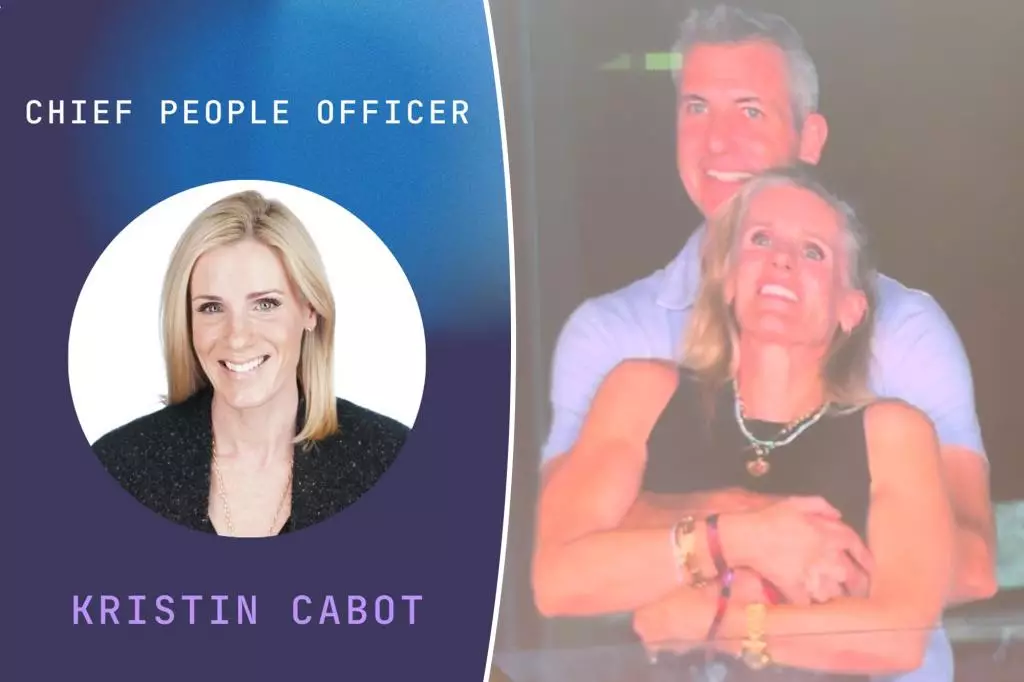In the contemporary corporate landscape, public personas are often crafted with precision to project authority, influence, and credibility. Kristin Cabot, the “Chief People Officer” at Astronomer, epitomized this trend with her self-assured claims of being a “fearless change agent” who “wins trust” across all levels of corporate hierarchy. At face value, such assertions reinforce a narrative of strong, confident leadership—yet, beneath this veneer lies the often harsh reality of human flaws, superficiality, and raw ambition. It is a sobering reminder that the way leaders portray their influence in online profiles or press releases frequently conceals complex personal dynamics and power struggles. What matters is that this image-building often prioritizes perception over authentic connection, molding a leader not necessarily admired for integrity, but for strategic self-promotion.
Much of the modern corporate culture emphasizes the importance of appearance—how one is perceived in the boardroom or via social media—sometimes at the expense of genuine connection or ethical behavior. Kristin Cabot’s bravado about her ability to build award-winning cultures and attract top talent reflects not an authentic, deeply rooted leadership philosophy but a carefully curated persona designed to inspire confidence and attract top-tier talent. This kind of narrative, while seemingly aspirational, runs the risk of becoming a superficial message that masks underlying issues—especially in a setting riddled with personal entanglements and conflicts of character.
The Power Dynamics and the Scandalous Underbelly
The recent exposure of Cabot’s romantic involvement with her married employer, CEO Andy Byron, shattered the carefully maintained illusion of professionalism. Their viral PDA during a concert laid bare a stark contrast between the executive’s polished image and the raw reality of human impulses and vulnerabilities. The incident prompts readers to question the true nature of influence and trust within corporate hierarchies. Are these relationships solely about emotional connection, or do they reveal deeper power dynamics at play? The fact that Cabot, despite her lofty claims of leadership and trust-building, was involved in a scandal that undermines her credibility, exposes a troubling disconnect—an obsession with appearances that ultimately crumbles under scrutiny.
The fallout extended beyond personal gossip; it spotlighted the often-toxic environment fostered under Byron’s leadership. Previous reports painted him as a domineering, volatile CEO willing to threaten dismissals at the slightest sign of disagreement. The pattern of threatening employees and “lash[ing] out” at dissenters demonstrates a leadership style rooted in control and intimidation rather than genuine influence or mentorship. Such behavior contradicts the glossy veneer of a “passionate People leader” committed to building inclusive or innovative cultures. Instead, it reveals a leadership approach riddled with insecurity and authoritarian tendencies capable of fostering hostile work environments.
The Myth of the Charismatic Visionary
At the core of this scandal lies a fundamental misconception—a belief that outward charisma equates to true leadership strength. Byron’s self-praise and Cabot’s proclaimed expertise suggest that appearances can be deceiving. Their story challenges the myth that confidence, strategic branding, or even publicly praised success necessarily indicate moral integrity or genuine ability. Authentic leadership is rooted in humility, accountability, and ethical consistency—qualities that seem conspicuously absent amid the spectacle of personal dishonesty and professional misconduct.
It becomes evident that organization culture is often a facade, carefully constructed around personalities rather than principles. The superficial fairy-tale of inspiring leadership fades quickly when personal flaws and ethical breaches surface. As Byron’s wife’s response to their scandal unfolded publicly, it revealed how personal relationships can infiltrate professional boundaries, eroding trust within the workplace and beyond. The spectacle highlights the peril of valuing superficial charm over substantive integrity and accountability.
Questioning the Real Meaning of Influence
In a broader context, the incident at Astronomer raises a critical question: what does true influence look like? Is it mere charisma, or does it require a foundation of ethical behavior, respect, and transparency? It’s tempting to idolize executives who project confidence and command attention—yet, the true test of leadership emerges when personal shortcomings threaten to overshadow their professional veneer. This scandal underscores that influence can be fleeting, and when based on manipulated images rather than authentic character, it is inherently unstable.
The modern audience, increasingly skeptical and discerning, demands more than polished profiles and viral scandal moments. They crave authentic leadership grounded in sincerity, accountability, and moral integrity. The spectacle at Boston’s concert and the surrounding gossip serve as a stark reminder that even the most seemingly powerful leaders are vulnerable—exposed not only by their personal missteps but also by the cracks in their constructed facades. In the end, influence built on superficial foundations is inherently fragile, destined to crack under pressure or scrutiny.

